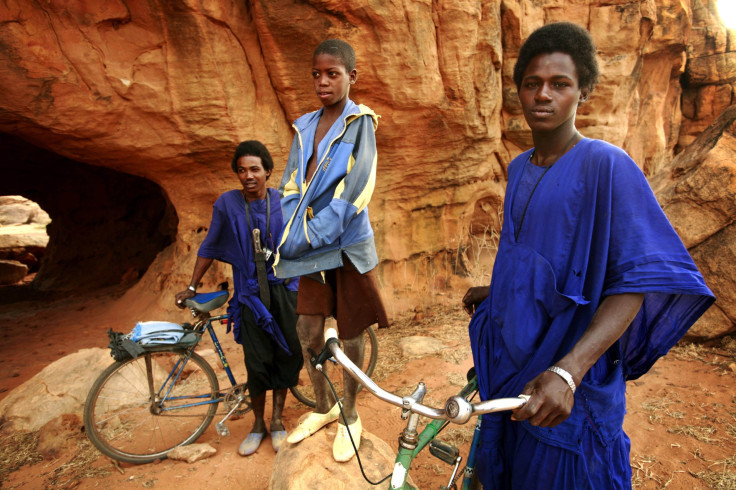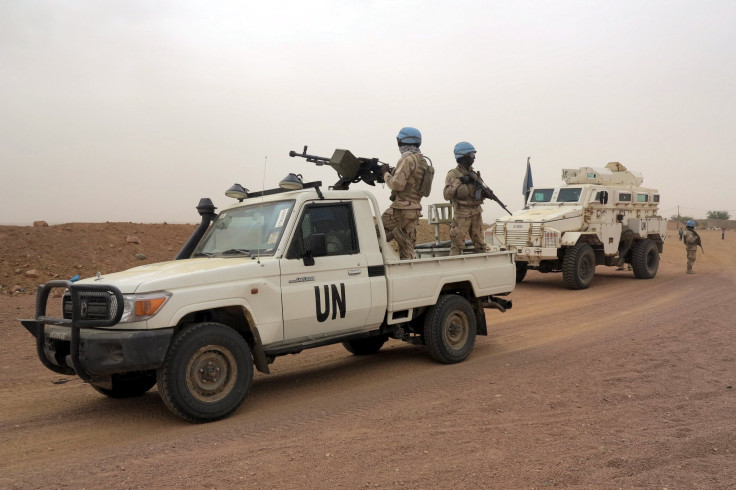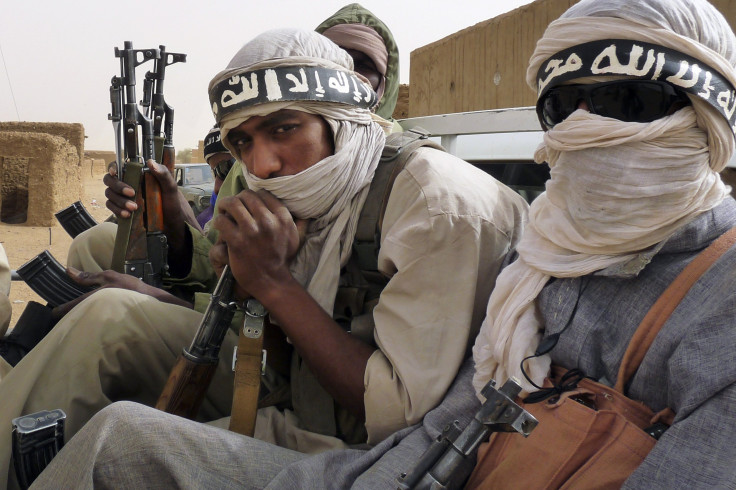Malian Military’s Excessive Force Lures Young Recruits Into New Terrorist Group

Government soldiers in Konna, a town in central Mali, gathered outside a local station, stopping groups of men as they stepped off a bus. Working quickly, the solders detained those they suspected of affiliating with Islamic rebel groups, leading the accused to a nearby field where they shot them before dumping their bodies in a well. Almost all of the men were members of the Peuhl ethnic group, also known as the Fulani, who are mostly nomadic herders and one of the largest ethnolinguistic groups in Africa.
That was in 2013. Two years later, ethnic Peuhl say the situation for them in Mali is even worse. The longstanding abuse and discrimination they've faced is prompting a younger generation, buoyed with anger, to join an extremist rebel group known as the Massina Liberation Front (MLF). The MLF militants have claimed responsibility for several terrorist attacks in Mali in recent months and have successfully prevented the government and the U.N. peacekeeping force in the country from maintaining order.
As the group continues to grow, analysts fear the group could create a massive security issue for the entire region. Corinne Dufka, the West Africa director at Human Rights Watch who is researching the subject, says, “I have been told by few people on the ground in this group that they feel between a rock and a hard place -- and that is fueling support for this movement.”
Members of the Fulani youth are joining the Massina Liberation Front in Mali because they feel they have no other means of protecting themselves against the government in Bamako, Dufka says. Other members come from the ranks of other extremist groups that seized swaths of land in the north of Mali in 2012. The new, growing movement has put locals on edge and has forced numerous officials to flee.
In a country already crowded with rebels, if the Massina Liberation Front continues to grow as rapidly as it has since the beginning of the year, it could soon become the standout extremist group in Mali. There remains a greater fear that the MLF will become the leading extremist group across West and Central Africa -- the Peuhl number 20 million people across the region, in countries such as Guinea Bissau, Ghana, Niger, South Sudan, Liberia and Burkina Faso.
Analysts say the growing force behind the group is disconcerting because no one knows for certain where the rebels receive their funding. Some say the militants operate independently from any other group in the country. Others say the rebels could be linked to Ansar Dine, another extremist group active in the southern part of the country with links to al Qaeda in the Islamic Maghreb (AQIM). Ansar Dine’s leader Iyad Ag Ghali fought with Koufa during the nothern occupation in Mali.
"The most likely scenario is that the new movement is connected to a rapidly growing illicit trade network in Mali," said Hilary Matfess, a researcher with the Johns Hopkins University School of Advanced International Studies.
Matfess said the group could be linked to Mokhtar Belmokhtar, the infamous one-eyed Algerian leader of AQIM, best known for setting up a lucrative cigarette smuggling network in the Sahara, although it is unclear whether Belmokhtar is still alive as his supporters claim, or, as some reports suggest, died fighting in Libya.
The MLF group, although some experts debate its origins, is loyal to Amadou Koufa, a radical preacher from the city of Mopti, where the majority of Fulani people in Mali live. Koufa calls on the Fulanis to wage jihad against the rival Bambara ethnic group, the dominant ethnic group in Mali, and to re-establish the Massina Empire which used to encompass a mass of land across Mali, Senegal and Nigeria. Its capital Hamdallaye, near present day Mopti, now lies in ruins.

"A very important yet ignored phenomenon is the fusion of ethnic and Islamists group in Malian conflict," said Usama Butt, the director of the Institute for Islamic Strategic Affairs, a global think tank based in the United Kingdom. "MLF represents that very mix. It is becoming increasingly difficult to distinguish between ethnic and Jihadist militants."
Regardless of where the allegiances of the MLF leadership lie, the lower-level, young members are desperate to break the cycle of neglect from the Malian government.
"There has been mistreatment by the army like excessive force and often torture," Dufka said. "They feel neglected by the government and frustrated that the state has failed to respond to their security needs and to investigate killings in their community."
And frequently, the response of the young Fulani has been one of violence -- since January, the MLF has carried out at least six attacks, according to military statements. In one of the most recent attacks, the group attacked a hotel in Sevare and killed 12 people, including five contractors from the United Nations.

Dufka said many of the people in the Fulani community think the MLF has been passed over in favor of the Tuareg rebel group who have recieved the most attention from the international community since the Tuareg entered peace talks with the central government in Bamako after the 2012 uprising.
Mali has been mired in violence for the last three years, when ethnic Tuareg rebels overthrew the government. The ousting of President Amadou Toumani Toure created a vacuum that allowed for the rise of extremist rebel groups connected to al Qaeda in the Islamic Maghreb (AQIM), a branch of the broader al Qaeda network. The government of Mali requested international help -- French forces intervened, followed by a U.N. peacekeeping mission.
Since then, the government and rebels have attempted to sign peace agreements, but talks have repeatedly broken down. The Malian government and a semi-moderate ethnic Tuareg rebel umbrella group signed a peace deal in June, but it is unclear whether that pact will hold given the country's recent violence.
The MLF is adding to a combustible mix that is likely to change the entire makeup of central Africa's security situation -- as the group gains recruits and weapons, Mali lurches from one rebel crisis to another, fomenting tension in an already embattled region.
© Copyright IBTimes 2024. All rights reserved.











